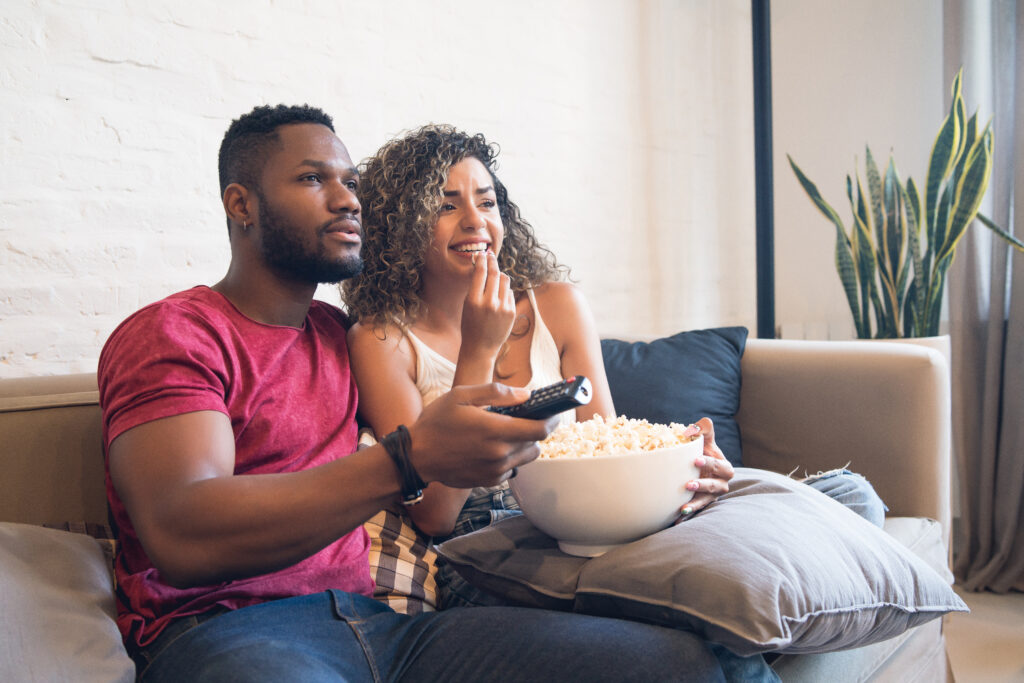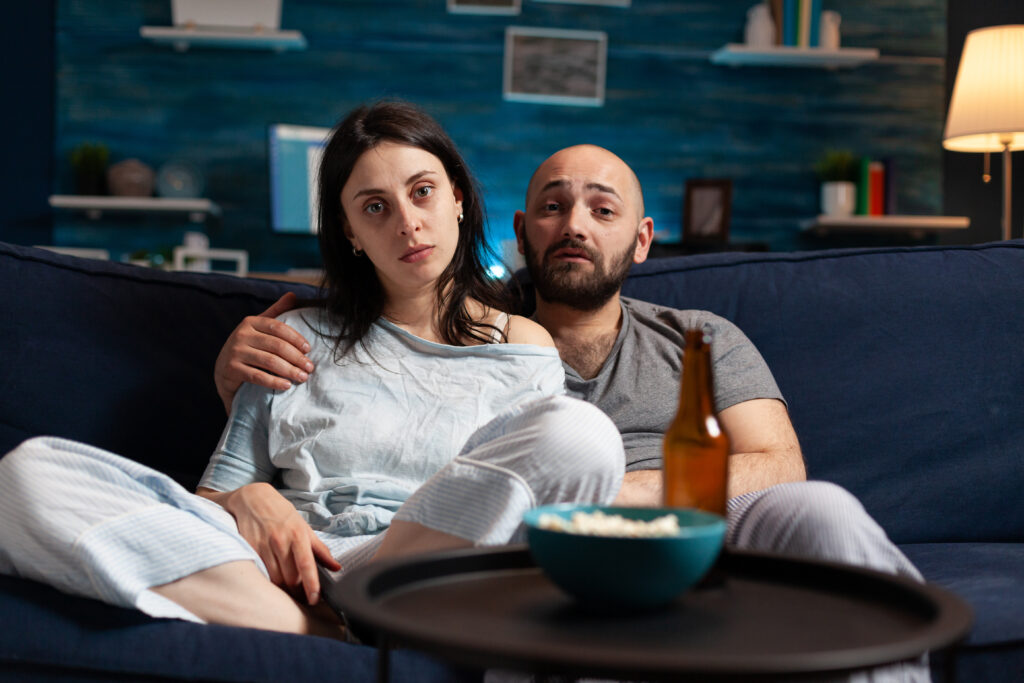Binge-Watching Together: Strengthening or Straining Relationships?
In the era of endless streaming platforms and binge-worthy content, couples today are more likely to spend a Friday night curled up on the couch than out on the town.
From Netflix and Hulu to Disney+ and HBO Max, binge-watching has become a default bonding activity for many. But is this screen-time together strengthening relationships or quietly driving a wedge between partners?
The Comfort of Shared Screens
For many couples, watching shows together is more than just a pastime—it’s a ritual. Psychologists suggest that shared experiences, even those as simple as watching a series, can create stronger emotional bonds. Dr. Sarah Gomillion, a psychologist at the University of Aberdeen, notes that couples who share media experiences often feel more connected because they build a “shared social world” through storytelling and mutual interests.
Watching a gripping drama or light-hearted sitcom together can provide common ground for conversations, inside jokes, and emotional reactions. Couples often find themselves referencing characters or plot twists in daily life, subtly strengthening their connection. A study published in the Journal of Social and Personal Relationships even suggests that couples who share media preferences report higher relationship satisfaction, especially if they lack shared social circles.
When Streaming Creates Distance
However, not all binge-watching habits foster closeness. For some, excessive streaming can lead to emotional distance. Passive screen time may replace meaningful conversations or quality engagement. When couples fall into the trap of defaulting to binge-watching instead of actively connecting, it can result in emotional stagnation.
Differing viewing habits can also introduce friction. Imagine one partner craving suspenseful thrillers while the other prefers reality TV. Disagreements over what to watch—or worse, watching episodes ahead without the other—can spark minor conflicts. This modern offense, known as “Netflix cheating,” is surprisingly common. A survey by Netflix found that 46% of streaming couples admit to sneaking ahead on a series, leading to feelings of betrayal and frustration.
Moreover, binge-watching can sometimes encourage avoidance. Couples might use screens to sidestep difficult conversations or emotional intimacy. In these cases, the glow of the TV becomes a buffer rather than a bridge.

Balancing Screen Time and Connection
So how can couples turn binge-watching into a relationship booster rather than a strain? The answer lies in intentionality. Choosing shows together, setting boundaries for screen time, and balancing TV nights with other shared activities can keep entertainment from dominating the relationship.
Here are a few strategies couples can try:
Respect Viewing Preferences:
It’s okay to have separate shows. Partners should feel free to enjoy solo content without guilt, as long as there’s shared viewing time, too.
Create a Watchlist Together:
Selecting shows that both partners enjoy ensures mutual investment and excitement. Rotate between genres to keep things fresh.
Set Boundaries for Binge Nights:
Agree on how many episodes to watch in one sitting to avoid overindulgence that can lead to burnout or lost sleep.
Mix in Screen-Free Activities:
Balance movie marathons with activities that foster deeper connection, like cooking dinner together or taking evening walks.

Is Binge-Watching Helping or Hurting Your Relationship?
Ultimately, binge-watching is like any other shared activity—it can strengthen bonds when done mindfully or strain them when it becomes a default distraction. For couples who use streaming as a way to unwind and engage in conversation, it can enhance closeness. But for those who allow screen time to replace meaningful interaction, it risks creating silent distance.
The key is balance. Entertainment should complement a relationship, not define it. So, before queuing up another series, couples might want to ask: Are we watching together to connect—or to disconnect?
In 2025, with even more immersive content and streaming platforms on the rise, navigating this balance will only become more important. The silver screen may shine brightly, but the real connection happens when the TV is paused.
What do you think? Does binge-watching bring you closer to your partner, or do you feel it’s created distance? Let me know your thoughts in the comments below!









